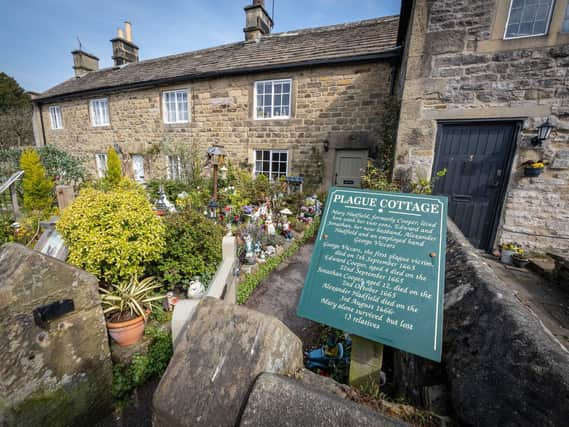History shows humanity has come through much worse than coronavirus


Historical enlightenment on our problems comes from an episode of BBC Four’s Michael Woods’ Story of England on The Great Famine and Black Death.
Its research comes from the village of Kibworth, Leicestershire. From 1290, the English weather went wrong with a mini ice-age, prolonged rain, and harsh winters lasting beyond Easter.
Advertisement
Hide AdAdvertisement
Hide AdThe first signs of the famine emerged in 1302. This was followed by severe cold in 1314, a record wet late summer in 1315 and sheep rot on the farms; 1316 was very dry, producing rock hard ground and resulting in the worst harvest. Times were exceptionally tough; of England’s population of five million, half a million died.
In the same century far worse was to come. The Black Death started in India and was spread by rats, swept across the Middle East, through Asia Minor, and reached London 1348.
Much of England was severely affected during 1349. The population of six million was reduced to two to three million. The only solution then was crowd herding.
It is inconceivable to think of applying the same ratio of deaths in our new pandemic.
Advertisement
Hide AdAdvertisement
Hide AdEditor’s note: first and foremost - and rarely have I written down these words with more sincerity - I hope this finds you well.
Almost certainly you are here because you value the quality and the integrity of the journalism produced by The Yorkshire Post’s journalists - almost all of which live alongside you in Yorkshire, spending the wages they earn with Yorkshire businesses - who last year took this title to the industry watchdog’s Most Trusted Newspaper in Britain accolade.
And that is why I must make an urgent request of you: as advertising revenue declines, your support becomes evermore crucial to the maintenance of the journalistic standards expected of The Yorkshire Post. If you can, safely, please buy a paper or take up a subscription. We want to continue to make you proud of Yorkshire’s National Newspaper but we are going to need your help.
Postal subscription copies can be ordered by calling 0330 4030066 or by emailing [email protected]. Vouchers, to be exchanged at retail sales outlets - our newsagents need you, too - can be subscribed to by contacting subscriptions on 0330 1235950 or by visiting www.localsubsplus.co.uk where you should select The Yorkshire Post from the list of titles available.
Advertisement
Hide AdAdvertisement
Hide AdIf you want to help right now, download our tablet app from the App / Play Stores. Every contribution you make helps to provide this county with the best regional journalism in the country.
Sincerely. Thank you.
James Mitchinson